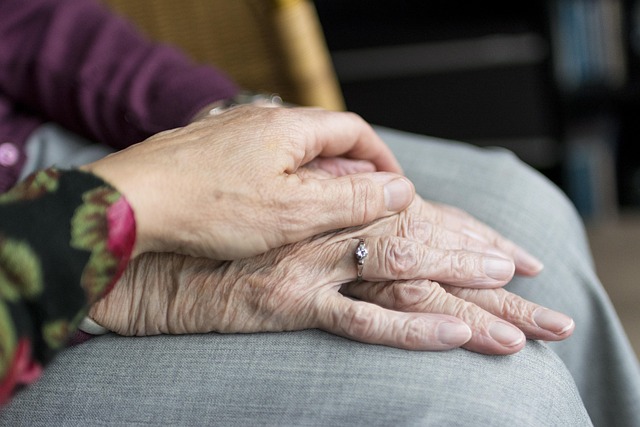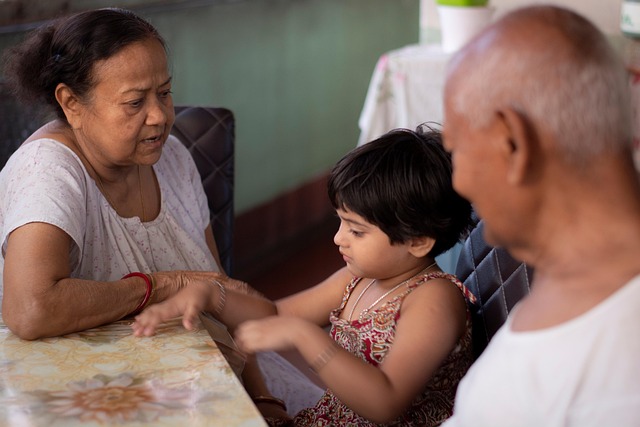In Oregon, grandparent rights are legally protected with a clear court process for access. Grandparents must file a petition, demonstrating their ability to provide a stable environment while the court considers the child's best interests and bond with grandparents. Cases cover custody, visitation, and guardianship, requiring understanding of the Oregon court process and child's well-being. The initial step involves petitioning for custody or visitation, followed by a hearing where both parties present cases. Lawyers are vital in navigating complexities, ensuring fair outcomes. Community organizations offer workshops and legal aid organizations provide consultations to educate grandparents about their rights and options in the Oregon court system.
“Unraveling the Oregon court process for grandparents can be a complex task, but this comprehensive guide aims to demystify every step. In Oregon, grandparent rights are carefully delineated, offering a clear roadmap for those seeking legal involvement in their grandchild’s life. This article explores various court cases involving grandparents, from visitation rights to custody battles. We’ll navigate the process, from initial consultations to courtroom appearances, ensuring you’re equipped with knowledge. Additionally, we highlight key players and offer valuable resources for Oregon’s grandparent community.”
- Grandparent Rights in Oregon: An Overview
- Types of Court Cases Involving Grandparents
- The Legal Process Step-by-Step
- Key Players and Their Roles in Oregon Courts
- Resources and Support for Grandparents Navigating the Oregon Court System
Grandparent Rights in Oregon: An Overview

In Oregon, grandparent rights are legally recognized and protected under specific circumstances. Understanding the court process is crucial for grandparents seeking access to their grandchildren. The state’s legal framework provides a pathway for grandparents to establish or maintain relationships with their grandchildren, especially when parents are unavailable or unwilling to provide care.
The court process in Oregon involves filing a petition, which outlines the grandparent’s request for visitation or custody. The court will consider various factors, including the child’s best interests, the strength of the grandparent-grandchild bond, and any existing parenting plans. Grandparents must demonstrate their ability to provide a stable and loving environment. An understanding of the local court procedures, evidence collection, and legal arguments is essential for navigating this process successfully in Oregon.
Types of Court Cases Involving Grandparents

In Oregon, court cases involving grandparents can be categorized into several types, each with its unique legal landscape and implications. These proceedings often revolve around issues of custody, visitation, and guardianship, providing a framework for maintaining or establishing significant relationships between grandparents and their grandchildren. Understanding the specific type of case is crucial in navigating the Oregon court process, as it dictates the rights, procedures, and potential outcomes.
Custody and visitation disputes are common, where grandparents seek legal recognition of their parental role or increased access to their grandchildren. Guardianship cases, on the other hand, involve situations where a grandparent may need to petition the court to be appointed as a legal guardian for their grandchild, particularly if the parents are unable or unwilling to care for them. Each case requires a meticulous approach, ensuring that the best interests of the child are at the forefront while respecting the rights and roles of grandparents within the family unit.
The Legal Process Step-by-Step

When navigating the Oregon court process as a grandparent, it’s crucial to understand the steps involved in order to protect your rights and best advocate for your grandchild. The process begins with petitioning the court for custody or visitation rights. This involves filling out the necessary forms and submitting them to the appropriate court, typically the juvenile or family court. Once the petition is filed, a hearing date will be scheduled where both parties can present their cases.
At this hearing, a judge will review the evidence and arguments from both grandparents and parents. They will consider factors such as the child’s well-being, stability, and relationship with each parent or grandparent. Depending on the outcome of the hearing, the court may grant joint custody, sole custody to one parent with visitation rights for grandparents, or establish a specific visitation schedule. It’s important to remember that each case is unique, and the Oregon court process aims to make decisions in the best interest of the child.
Key Players and Their Roles in Oregon Courts

In Oregon courts, several key players facilitate the understanding court process for all involved parties, especially grandparents seeking rights or involvement in a child’s life. The judge presides over cases and makes final decisions, ensuring fairness and adhering to state laws and regulations. They interpret legal arguments and evidence presented by attorneys representing both sides, ultimately rendering judgments or orders.
Lawyers play a pivotal role in the understanding court process in Oregon, guiding their clients through the complexities of the legal system. These attorneys advocate for their clients’ interests, whether they represent the parents involved, the child, or grandparents seeking custody or visitation rights. They prepare legal documents, conduct research, and present cases to the judge, ensuring that everyone’s rights are protected and that the court process is as smooth and just as possible.
Resources and Support for Grandparents Navigating the Oregon Court System

Navigating the Oregon court system can be a challenging task, especially for grandparents who may be unfamiliar with legal procedures. Fortunately, there are numerous resources and support systems in place to assist them throughout this process. Many local community organizations offer workshops and informational sessions tailored to educating grandparents about their rights and options. These sessions cover various topics, including understanding the court process in Oregon, recognizing potential legal issues, and knowing where to seek help.
Additionally, legal aid organizations dedicated to family law provide free or low-cost consultations for grandparents facing custody or visitation matters. These professionals offer guidance tailored to each family’s unique situation, ensuring grandparents are well-informed and prepared for court appearances. Many also have online resources and toolkits that simplify complex legal terms, making it easier for grandparents to understand the Oregon court process and advocate for their rights.














